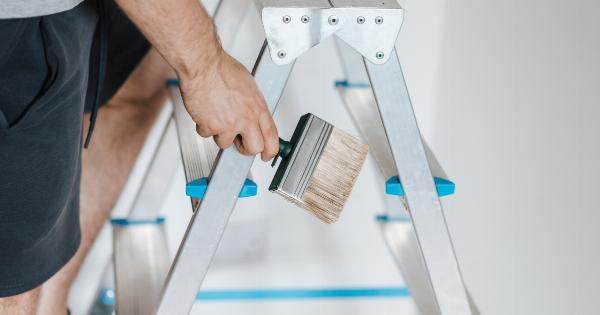Female hygiene is an essential aspect of maintaining overall health and preventing infections. Proper care for the intimate area is especially important to reduce the risks of bacterial vaginosis, yeast infections, and other related complications.
Understanding female hygiene and learning how to take care of your intimate area are important for every woman. In this article, we will discuss some tips for achieving proper hygiene and care for the intimate area.
What is Female Hygiene?
Female hygiene refers to the series of practices and habits that keep the female reproductive area clean and healthy. Proper hygiene is essential to prevent the build-up of bacteria and other harmful microorganisms that can cause infections.
Also, good hygiene habits can help prevent natural odors and prevent discomfort or irritation.
Proper Care for Your Intimate Area
Below are some tips for proper care for your intimate area:.
1. Use Mild Soaps
Use gentle, fragrance-free soap while cleaning the intimate area. Soaps with harsh chemicals or scents like those marketed to provide a “fresh” scent can be irritants to the skin and lead to infection.
Using mild, fragrance-free soaps can protect sensitive areas from bacterial overgrowth or inflammation.
2. Cleanse Properly
Proper cleansing involves using water and soap to clean the surrounding area of the vulva, labia, and the vagina. It would help if you avoided using harsh scrubs or exfoliants in these areas to avoid skin irritation.
Cleansing may be done twice daily, with one during a shower and another after activities that may generate sweat.
3. Avoid Douching
Douching is the process of forcefully cleaning the inside of the vagina with water or other solutions. It is not necessary and can cause damage to healthy bacteria that protect the vagina and lead to infection.
The vagina is designed to clean itself and get rid of any harmful bacteria. Use of douching solutions can lead to unwanted infections and bacterial imbalances in the vaginal flora.
4. Wear Loose Clothing
Tight clothing, especially during sports or activities, can increase sweat and moisture in the intimate area, which can lead to the growth of bacteria.
Wearing comfortable, loose-fitting clothing, particularly cotton panties, can aid the circulation of air and reduce sweating and moisture buildup in the area, achieving better hygiene.
5. Wash Clothing and Underwear Regularly
Thoroughly washing your clothes and undergarments eliminates any build-up of bacteria or germs on clothing or underwear, without carrying these and possible infecting the intimate area.
You’ll want to avoid using detergents with aggressive chemicals when washing your undergarments, as these can be harsh on sensitive skin and cause irritation.
6. Keep Pubic Hair Clean and Trimmed
While there is no best way to manage pubic hair, keeping the pubic hair clean and trimmed can reduce the chances of excess bacteria growth, infection, or buildup of sweat in that area.
Pubic hair acts as a natural barrier for the intimate area, but keeping it clean and trimmed provides adequate ventilation whilst helping to avoid specific kinds of rash and irritation.
7. Clean Hands Before Touching the Intimate Area
Your hands can transfer bacteria from other parts of your body to your intimate area if they are not appropriately washed before touching that area. Proper hand hygiene is essential before touching down there, especially after using the restroom.
8. Use Protection During Intercourse
Using appropriate protection while having intercourse, such as a condom, reduces the transmission of bacteria and infections, limiting the risk of sexually transmitted diseases.
Proper hygiene and protection during intercourse are essential in maintaining your intimate area’s health and avoiding unwanted infections.
9. Change Sanitary Products Regularly
Sanitary pads, menstruation cups, and tampons should be changed regularly when menstruating.
Use of normal sanitary towels can be done not more than three hours, whereas tampons or menstruation cups must be changed at least four to five hours depending on the flow. Linking, leaving a tampon can be extremely dangerous, as it can lead to blood poisoning.
10. Visit the Gynecologist Regularly
Your gynecologist can be your best friend when it comes to your intimate area’s health.
They can offer guidance on proper hygiene methods, recommend appropriate products for use, and provide detailed examinations and relevant tests to ensure optimal intimate health. Ensure to keep regular appointments with your gynecologist and aspiring towards establishing an open and honest relationship with them to guarantee comprehensive access to information and top-notch care.
Conclusion
Understanding female hygiene practices and applying them to your daily life can significantly improve your intimate area’s health, prevent unwanted bacteria or infection-related complications, and enable you to feel comfortable with yourself.
It’s essential to keep in mind that every person’s body is different, and what works for others may not work for you. Therefore, take the time to explore and learn what’s best for your body.































